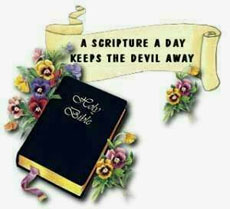Why Black Churches Are Keeping Millennials
The reasons are rooted in history.

Should blacks be counted as Millennials?
That’s the question Thabiti Anyabwile, an African American pastor at Capitol Hill Baptist Church, asks when handwringing commences about young people leaving US churches.
“Researchers describe millennials as a fairly privileged and special group, which is so far from the reality of so many African Americans,” said Anyabwile. “When it comes to describing broad demographic trends, you’re woefully in danger of building a profile based on the assumed normative experiences of majority culture.”
At large, millennials are less religious than were earlier generations of Americans. In 2012, Pew Research Center released data showing that 32 percent of Americans ages 18 to 29 are religiously unaffiliated. This was an 11 percent increase over any other age group that year, and a 7 percent jump from the 25 percent of young people who responded this way in 2007.
Yet a deeper dive into Pew’s study suggests whites are overrepresented among those who are not religiously affiliated. Anglos make up 66 percent of the US population, yet they compose 71 percent of those with no religious affiliation. In contrast, blacks make up 11 percent of the population but only 9 percent of the so-called “nones.”
Black Protestants have retained the greatest number of millennials compared with Catholics, white mainliners, and white evangelicals, according to 2012 data from the Public Religion Research Institute and Georgetown’s Berkley Center for Religion, Peace, and World Affairs. These traditions have seen their market share of millennials drop by 8.4, 7.3, and 2.2 percentage points, respectively. In contrast, black Protestant millennials have decreased …
Canadian Justice: You Can’t Block Lawyers Over Their Alma Mater Banning Gay Sex
“This decision isn’t about whether LGBT equality rights are more or less important that the religious freedoms of Evangelical Christians”

A Nova Scotian law society cannot deny future graduates of Canada’s first Christian law school the right to practice because of the college’s position on sexuality, a provincial Supreme Court justice ruled on Wednesday.
“This decision is important not only to [Trinity Western University’s] effort to launch a School of Law but also, we believe it sets an extremely valuable precedent in protection of freedoms for all religious communities and people of faith in Canada,” Trinity Western University (TWU) spokesperson Guy Saffold said in a statement.
Last spring, the Nova Scotia Barristers’ Society (NSBS) offered TWU law graduates recognition—but only if the school struck its rules against “sexual intimacy that violates the sacredness of marriage between a man and a woman.”
In his decision, Justice Jamie Campbell wrote that asking TWU to change its community covenant was akin to the NSBS dictating what professors be offered tenure or setting admissions policies:
This decision isn’t about whether LGBT equality rights are more or less important that the religious freedoms of Evangelical Christians. It’s not a value judgment in that sense at all. It is first about whether the NSBS had the authority to do what it did. It is also about whether, even if it had that authority, the NSBS reasonably considered the implications of its actions on the religious freedoms of TWU and its students in a way that was consistent with Canadian legal values of inclusiveness, pluralism, and the respect for the rule of law.
Campbell noted that while the views of many Canadians toward LGBT people have undergone a “decisive shift,” those whose perspectives have …
Canadian Justice: You Can’t Bar Lawyers Just Because Their Alma Mater Bars Gay Sex
“This decision isn’t about whether LGBT equality rights are more or less important that the religious freedoms of Evangelical Christians”

A Nova Scotian law society cannot deny future graduates of Canada’s first Christian law school the right to practice because of the college’s position on sexuality, a provincial Supreme Court justice ruled on Wednesday.
“This decision is important not only to [Trinity Western University’s] effort to launch a School of Law but also, we believe it sets an extremely valuable precedent in protection of freedoms for all religious communities and people of faith in Canada,” Trinity Western University (TWU) spokesperson Guy Saffold said in a statement.
Last spring, the Nova Scotia Barristers’ Society (NSBS) offered TWU law graduates recognition—but only if the school struck its rules against “sexual intimacy that violates the sacredness of marriage between a man and a woman.”
In his decision, Justice Jamie Campbell wrote that asking TWU to change its community covenant was akin to the NSBS dictating what professors be offered tenure or setting admissions policies:
This decision isn’t about whether LGBT equality rights are more or less important that the religious freedoms of Evangelical Christians. It’s not a value judgment in that sense at all. It is first about whether the NSBS had the authority to do what it did. It is also about whether, even if it had that authority, the NSBS reasonably considered the implications of its actions on the religious freedoms of TWU and its students in a way that was consistent with Canadian legal values of inclusiveness, pluralism, and the respect for the rule of law.
Campbell noted that while the views of many Canadians toward LGBT people have undergone a “decisive shift,” those whose perspectives have …
Why Black Churches Are Keeping Millennials
The reasons are rooted in history.

Should blacks be counted as Millennials?
That’s the question Thabiti Anyabwile, an African American pastor at Capitol Hill Baptist Church, asks when handwringing commences about young people leaving US churches.
“Researchers describe millennials as a fairly privileged and special group, which is so far from the reality of so many African Americans,” said Anyabwile. “When it comes to describing broad demographic trends, you’re woefully in danger of building a profile based on the assumed normative experiences of majority culture.”
At large, millennials are less religious than were earlier generations of Americans. In 2012, Pew Research Center released data showing that 32 percent of Americans ages 18 to 29 are religiously unaffiliated. This was an 11 percent increase over any other age group that year, and a 7 percent jump from the 25 percent of young people who responded this way in 2007.
Yet a deeper dive into Pew’s study suggests whites are overrepresented among those who are not religiously affiliated. Anglos make up 66 percent of the US population, yet they compose 71 percent of those with no religious affiliation. In contrast, blacks make up 11 percent of the population but only 9 percent of the so-called “nones.”
Black Protestants have retained the greatest number of millennials compared with Catholics, white mainliners, and white evangelicals, according to 2012 data from the Public Religion Research Institute and Georgetown’s Berkley Center for Religion, Peace, and World Affairs. These traditions have seen their market share of millennials drop by 8.4, 7.3, and 2.2 percentage points, respectively. In contrast, black Protestant millennials have decreased …
So Long New York: American Bible Society Heads to Philly
A year after putting its iconic building on the market, ABS exits the Big Apple after nearly two centuries.

After nearly 200 years in New York City, the American Bible Society (ABS) is departing for Philadelphia, one of an increasing number of religious institutions selling once iconic urban properties.
A 12-story building located blocks away from Central Park, ABS’ headquarters have also housed other evangelical ministries, including Q Ideas, Redeemer Presbyterian Church’s Center for Faith & Work, the Museum of Biblical Art, and Young Life.
American Bible Society president and CEO Roy Peterson announced the move in a joint press conference with Philadelphia mayor Michael Nutter on Wednesday morning. “On behalf of the City of Philadelphia, we’re honored to welcome American Bible Society to its new home,” Nutter said.
Peterson cited strategic collaboration opportunities, affordability and livability as reasons behind ABS’ relocation to downtown Philadelphia, though he called the decision to leave New York “heart-wrenching.”
“People can afford to live here [in Philadelphia], it’s walkable, there’s public transportation,” Peterson told The Philadelphia Inquirer. “Our staff commutes an hour or two…from Long Island, the Bronx.”
ABS also revealed plans to create a Bible Discovery Center, Scriptures Depository and scholarly working library in its new home, which will be located several blocks away from Independence Mall. The organization hopes to be fully moved in by the end of the summer, just ahead of Pope Francis’ Philadelphia visit in September.
ABS hired Peterson, who formerly led The Seed Company and Wycliffe USA, as its new CEO last January. In March, ABS broke the news that it would be selling its Upper West Side property after …




